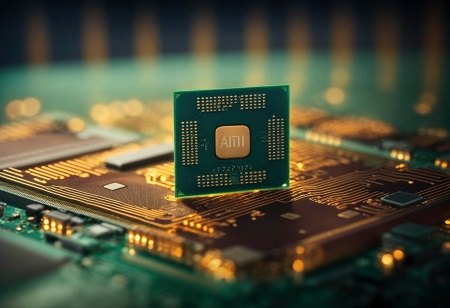Malaysia to Train 60,000 Semiconductor Engineers in a bid to develop Local Talent
 Prime Minister Anwar Ibrahim envisions Malaysia becoming a global hub for semiconductor production and is committed to investing in homegrown tech talent. The government aims to train 60,000 Malaysians as highly skilled semiconductor engineers, with a planned investment of at least 25 billion ringgit (US$5.33 billion) over the next decade under the National Semiconductor Strategy.
Prime Minister Anwar Ibrahim envisions Malaysia becoming a global hub for semiconductor production and is committed to investing in homegrown tech talent. The government aims to train 60,000 Malaysians as highly skilled semiconductor engineers, with a planned investment of at least 25 billion ringgit (US$5.33 billion) over the next decade under the National Semiconductor Strategy.
This investment, sourced mainly from sovereign wealth funds, will focus on talent development in chipmaking fields such as design, packaging, and testing. The program will collaborate with universities and corporations to achieve its goals. Anwar Ibrahim emphasized the vision of creating an ecosystem driven by dynamic Malaysian companies and world-class talent while forming partnerships with global firms to compete on innovation and creativity both regionally and globally.
Malaysia’s initiative aligns with its ambition to strengthen its position in the global semiconductor market, which is crucial for technologies like smartphones, computers, and automobiles. By cultivating a highly skilled workforce, the country aims to enhance local capabilities, attract investments, and generate higher-paying jobs.
This strategic development comes as international companies seek alternative production locations amid increasing US-China tensions. Prime Minister Ibrahim highlighted Malaysia’s neutrality and non-alignment, positioning the nation as a secure and resilient hub for semiconductor production within the global supply chain.
The National Semiconductor Strategy aims to attract 500 billion ringgit through domestic and foreign investments. This multifaceted approach not only focuses on talent development but also seeks to stimulate economic growth and enhance Malaysia’s competitiveness in the semiconductor industry. By fostering substantial investments in local talent, Malaysia hopes to secure a stronger economic future and a prominent role in the global semiconductor landscape.

.jpg)